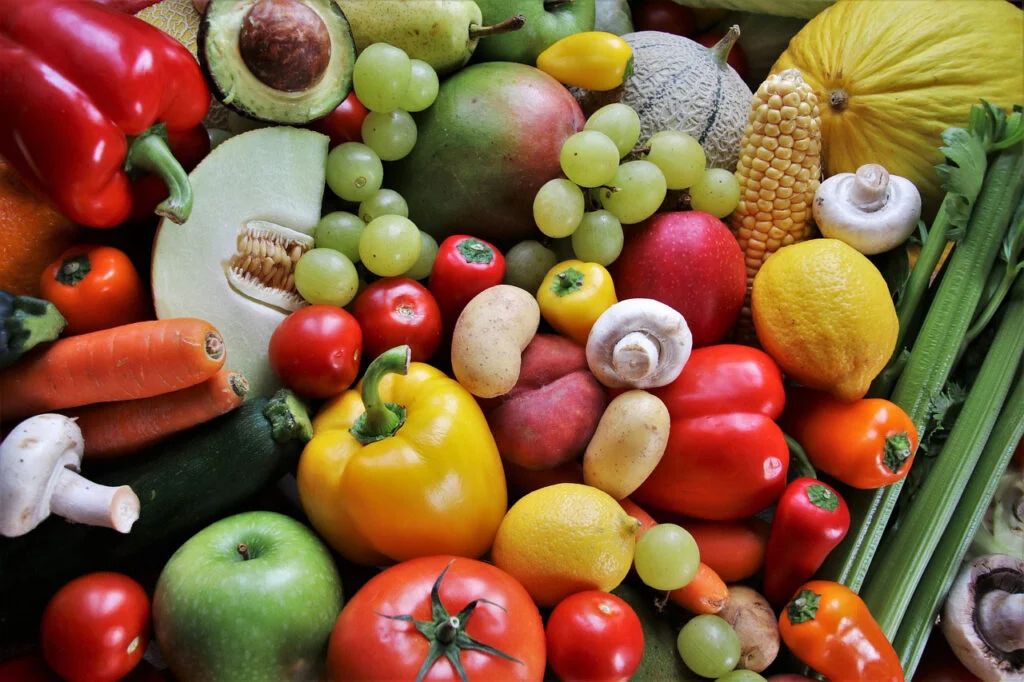
We’ve all heard the phrase, “an apple a day keeps the doctor away,” but did you know that an avocado a day might keep bad sleep away?
The findings come from a recent study about the effects of eating avocados on diet, sleep, and heart health.
It’s no secret that the superfood helps boost a healthy diet. Avocados have long been praised for their nutrients and healthy fats, but the link to sleep health is still relatively new. Let’s take a closer look at the study’s findings.
The Study’s Findings
Researchers found that those who consumed an avocado every day for 6 months saw improvements across a variety of health factors, including sleep quality. (1)
The study, funded by the Hass Avocado Board, involved over 1,000 people. Half ate an avocado every day for 6 months and the others followed their normal diet and were limited to eating two avocados a month. (1)
Participants’ sleep quality along with other health factors like diet quality, blood sugar levels, blood pressure, BMI, and physical activity were all measured according to the American Health Association’s Life’s Essential 8 Metric, a scale used to measure heart health.
Good news for avocado toast and guac lovers…those who ate an avocado daily saw higher sleep quality scores than those who didn’t eat avocados regularly.
As easy as it may sound to eat an avocado to sleep better, researchers say it’s not that simple. Eating an overall healthy diet is important to reap the overall health benefits.
“There’s an increasing body of evidence that suggests that more than just incorporating individual foods, there’s a drive toward adapting healthy dietary patterns to achieve clinically relevant improvements in cardiovascular risk factors,” Dr. Janhavi J. Damani, Penn State scholar who was involved in the study, told Healio. (2)
As yummy as avocados may be, they’re not the one-stop solution to bad sleep and other heart health problems, but they might help a little.
Why Could Avocados Improve Sleep?
I know it sounds silly, but there’s real science behind why avocados might help improve sleep. It all comes down to the vitamins and nutrients inside each avocado.
Avocados have lots of essential nutrients that our bodies need to function healthily. One of these nutrients is magnesium, which is often linked to sleep quality.
“Avocados are filled with healthy unsaturated fats, dietary fiber, and a variety of vitamins and minerals that promote overall health. Avocados may help promote sleep as they contain magnesium, potassium, folate, and tryptophan, all of which have been linked to sleep quality,” Shelley Balls, registered dietitian and nutritionist for Consumer Health Digest, tells Sleepopolis.
There are many studies to suggest that magnesium can help promote better sleep by making it easier for us to fall asleep.
“Magnesium can have a calming effect on someone, helping them to relax and set the stage for sleep,” says Dr. Shelby Harris, Sleepopolis’ Director of Sleep Health.
Some people even take magnesium supplements to help them sleep, but sleep experts say that the best way to get your magnesium intake is through the food you eat.
“The best form of magnesium is from our diet. Eating a well-balanced diet including foods that contain magnesium such as spinach, avocados, and eggs will have the greatest effect on your overall health and well-being,” says Dr. Raj Dasgupta, Sleepopololis’s Chief Medical Advisor.
Other Foods That Help Promote Better Sleep
Avocados aren’t the first fruit to be linked to better sleep. Tart cherries and cherry juice (the key ingredient in the sleepy girl mocktail) have long been linked to helping us fall asleep due to their high levels of melatonin, the hormone that tells our body to fall asleep. (3)
Not only that, foods like turkey, nuts, fish, and milk have also been linked to better sleep. This is because they all contain high levels of the sleep hormone, melatonin.
“Lean poultry and other protein foods like nuts, eggs, salmon, or dairy products contain tryptophan — the body converts this to the neurotransmitters melatonin and serotonin which help to regulate sleep patterns. Avocados, bananas and oats are also good sources,” says Kerry Beeson, nutritional therapist at Prep Kitchen.
As much as I wish there was one magical food that helped us all fall asleep instantly, it’s important to remember to eat these foods as just a small part of a well-balanced diet.
Sources
1. Damani JJ, Kris-Etherton PM, Lichtenstein AH, et al. Effect of Daily Avocado Intake on Cardiovascular Health Assessed by Life’s Essential 8: An Ancillary Study of the Habitual Diet and Avocado Trial. Current Developments in Nutrition. 2024;8:102188. doi:https://doi.org/10.1016/j.cdnut.2024.102188
2. An Avocado a Day May Improve Diet Quality,Sleep. www.healio.com. Accessed July 22, 2024. https://www.healio.com/news/primary-care/20240718/an-avocado-a-day-may-improve-diet-quality-sleep
3. Pigeon WR, Carr M, Gorman C, Perlis ML. Effects of a Tart Cherry Juice Beverage on the Sleep of Older Adults with Insomnia: A Pilot Study. Journal of Medicinal Food. 2010;13(3):579-583. doi:https://doi.org/10.1089/jmf.2009.0096
Balls, Shelley. Personal Interview. July 22, 2024.
Beeson, Kerry. Personal Interview. July 23, 2024.


























